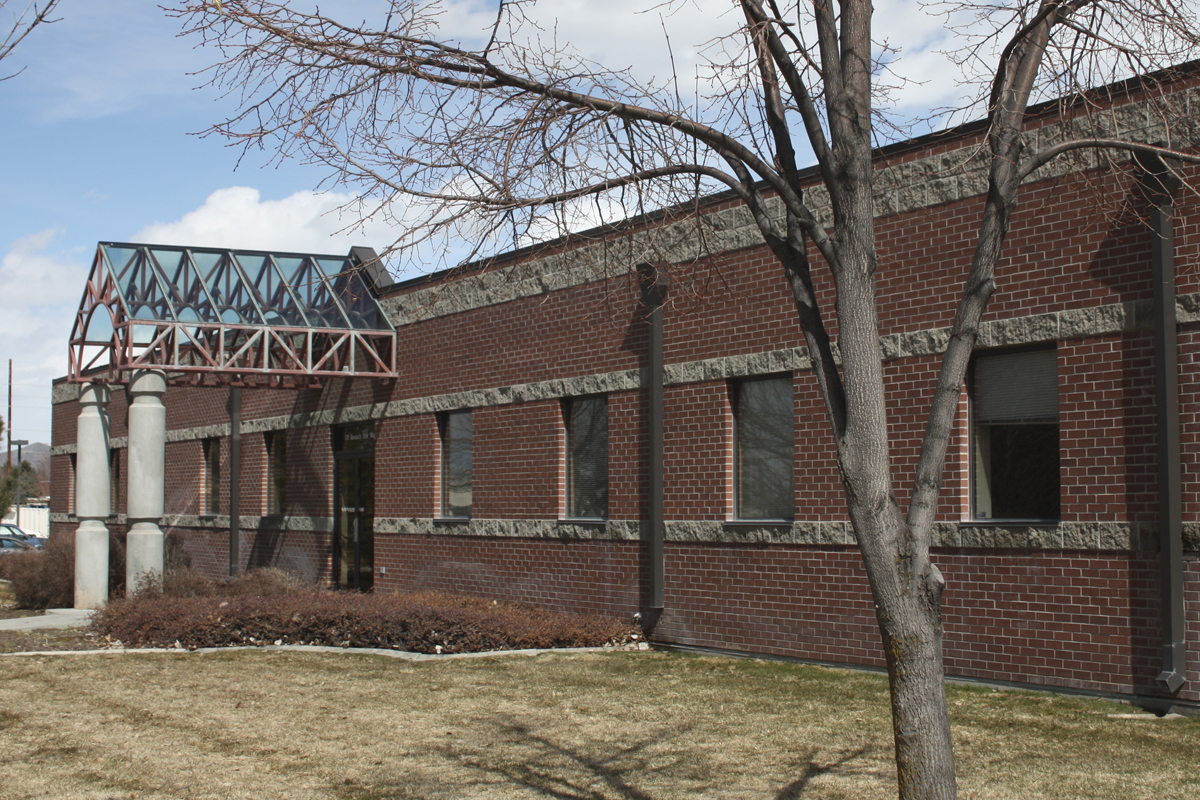Layoffs planned for restructuring
Five employees at the Technology Commercialization Office are subject to lay-offs at the end of June to make way for a restructuring of commercial development at USU that leads to the creation of two new management positions.
Berry Treat, Senior Commercialization Associate at the Technology Commercialization Office (TCO), said the associates in the office were told their jobs “ceased to exist” on Feb. 9, and the TCO is now under the direction of USU’s research foundation, USURF.
Getting an idea off the ground to be patented, licensed, and sold will be a more efficient process with the restructuring of the TCO, Rob Behunin, vice president for Commercialization and Regional Development, said Wednesday.
“At the end of the day we’re a little leaner, but our services have expanded because we’ve brought everybody together,” Behunin said.
The TCO will join with newly–hired business development officers and research programs funded by USTAR, the Utah Science Technology and Research initiative, and USURF to form Commercial Enterprises. The TCO’s name will no longer exist but the services they provide will be enhanced, Behunin said.
“We’re basically changing the name and restructuring it to make it better for inventors and inventions to get out there in the marketplace,” Emily Milam, a junior in marketing who works for the TCO, said.
Inventions at USU involve a wide variety of subjects, including, education, environmental impact, pharmaceuticals, and skin care.
In the old system for patenting, licensing, and marketing enterprises there is not enough communication, Behunin said. With the restructuring, these offices will be under the same leadership, and that should hopefully make protecting intellectual property rights and business ventures that go through the office better.
“Intellectual property,” or IP, is a term loosely used by business developers to describe something a person invented that has commercial value. vice president for Commercialization and Regional Development,
Behunin said he has big plans. He said by combining USU’s research and IP interests communication will be a lot smoother and there will be more opportunities for faculty members and students to get involved in business and research ventures at USU.
The restructuring includes letting all five professional commercialization associates in the TCO go on June 30, and hiring two IP managers instead. Behunin said those five are welcome to apply for the new positions, and that there are 15 or 16 applicants already.
The IP managers will be people who know good business practices and also the technologies on the market, Behunin said.
“Change is hard, change is difficult,” he said. “It’s not easy. But we have a responsibility to our stakeholders, to students, to state government, business, industry, all our supporters, to be as efficient as we can.”
Milam and the three other students employed at the TCO were told their jobs are safe in the restructuring.
“They knew that would be a concern of ours,” she said.
Behunin said students will continue to be valuable to Commercial Enterprises. Students in the office conduct market research, help draft patents, work to gain industry partners for business ventures, and complete internships in graphic design and accounting. Behunin said he hopes to involve more students in the future.
Behunin called the restructuring a “right-sizing.” Research and development projects at the university, which he said are funded by about $180 million in research grants, bring in only $700,000 from commercial ventures. The University of Utah, USU’s “big sister,” makes much more than that, Behunin said. His office does not receive any state funds.
“We basically eat what we kill,” Behunin said.
Last year was a record year for the TCO, when 50 patents were filed, 16 patents were issued, 19 license agreements were signed, and five spinout companies were created. The University of Utah issued about twice as many patents and filed over four times the number of patents as USU.
Behunin said, “We’ve got some work to do, but we’re still pretty small.”
Getting an invention or enterprise off the ground may seem hard, but it can be profitable. Behunin said the office is currently developing five enterprises in the billion dollar market. With the specialization of the office, the newly hired business officers will be able to concentrate more on enterprises that have greater potential instead of trying to meet so many needs at once and only skimming the surface.
Milam said the process of patenting an invention gets intricate and complicated, but the beginning is simple.
“You start out with an idea,” she said.
When an idea is brought to the TCO, it becomes a part of the university’s IP portfolio. If an invention needs a patent, the process can sometimes take months of patent research, cross referencing, and backstepping with the government patent office.
On the commercial side of things, a lot of market research and securing of partnerships is undertaken to benefit the inventors and the university.
This can take months. The restructuring cannot change all of that, but it should make the processes more efficient.
Milam said, “I think it’ll do a much better job with the restructuring, especially because there will be a lot more individual attention to each patent,.”
-la.stewart@aggiemail.usu.edu

